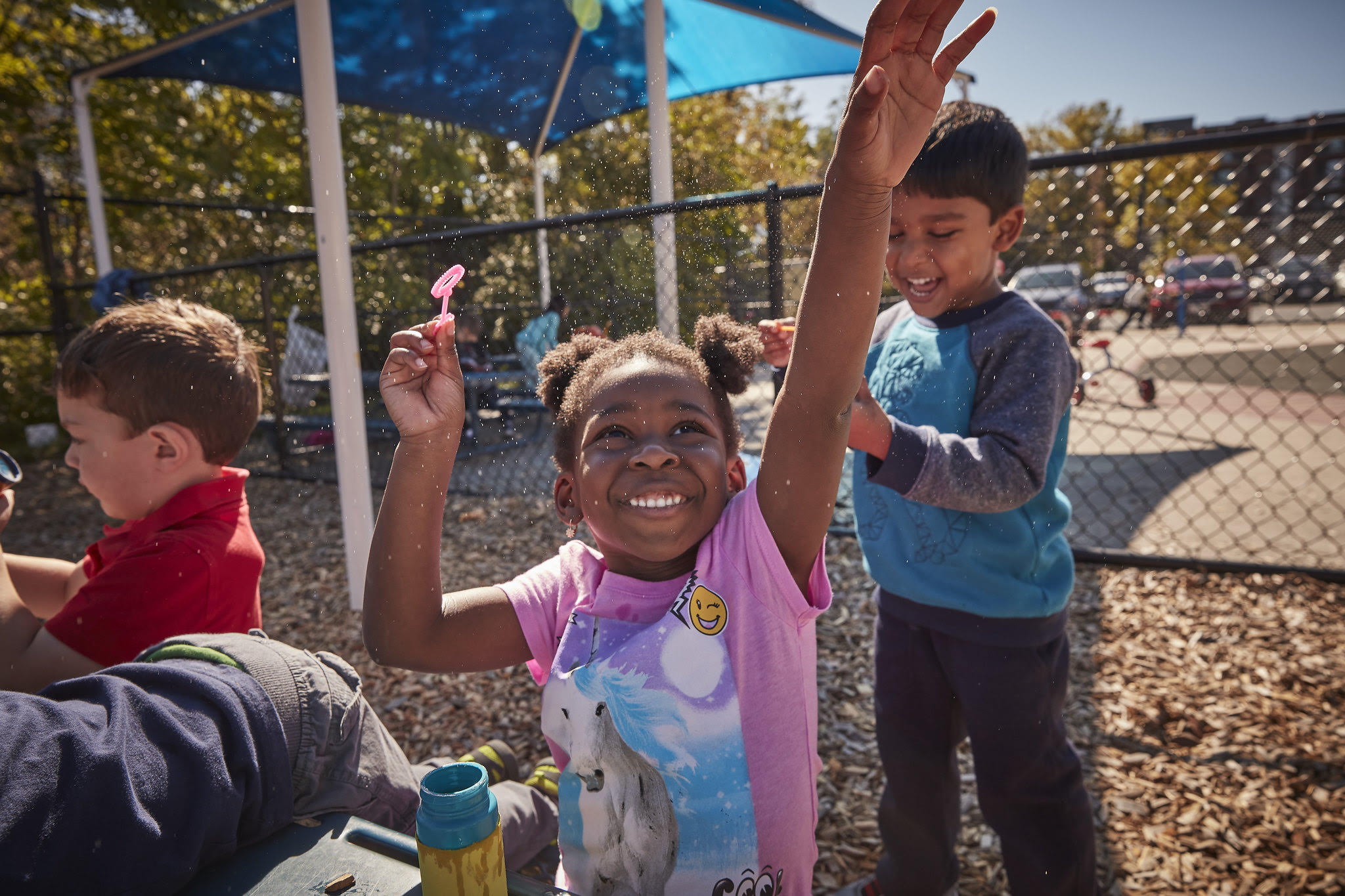
As our school year comes to (another!) close, KinderCare is here to remind us that it’s important to keep those little brains sharp and alert during the summer months. Otherwise, they may succumb to the dreaded “summer slide” — a period of time where students can lose some of the achievement gains made during the school year. But if you mix learning with summer fun, it ensures that your child will start the next school year ready to take on the books!
Read on for a few tips from KinderCare experts that parents can implement to help kids avoid the summer slide:
Read (and learn!) as a family
- Harvard research shows that reading and writing as a family while also encouraging kids to read on their own has a bigger impact on summer learning than any other activity.
- Seek out books and other reading materials that may relate to the fun places you see or visit during the summer.
- If you have an older child, you can take turns reading a chapter book or start a new book series together and engage in mini discussions about it.
Hit up your local library
- According to the Collaborative Summer Library Program, children who visit the library are less likely to experience a loss of learning over the summer.
- The Jacksonville Public Library offers a wide variety of summer reading programs and activities for children of all ages! These options can provide some ideas, or you can simply let kids loose in the stacks to find books of interest.
Keep those math skills sharp
- Math skills are quick to fall by the wayside during the summer months, according to Harvard University’s Graduate School of Education. Experts recommend getting creative with a few fun projects and activities to prevent your child from backsliding in math.
- You can also ask children to help add prices during trips to the grocery store or assist with counting and measuring while cooking dinner.
- Believe it or not, math can also be part of outdoor play! Kids of all ages can count objects they find outside such as the number of seashells collected at the beach or how many palm trees they can spot during a neighborhood stroll.
- If it’s too hot for a walk, count and sort indoor items such as blocks or toys by shape, size and color.
Plan your vacation around learning activities
- Find time during your family vacation for enriching educational opportunities like visiting museums, exploring historical sites and exposing your children to cultural activities.
- In fact, children who have access to a variety of extracurricular activities are not as likely to forget what they learned over the summer, according to the Collaborative Summer Library Program.
Get moving
- One of the healthiest uses of summer time is free and available to all: nature and the great outdoors!
- According to research by North Carolina State University’s Natural Learning Initiative, kids who spend more time playing outside are better problem-solvers and show an increase in focus and cognitive skills.
- Outdoor play can be adventurous like hiking or exploring the beach, or it can be something simple like a backyard scavenger hunt searching for specific plants or bugs.
Encourage healthy snacking habits
- Summertime eating routines can fluctuate based on unstructured meal times and access to more unhealthy snacks and sweets.
- Research from the University of Texas at Austin and the University of Oxford demonstrated a link between increased obesity and summer vacation.
- To foster good eating habits, consider spending time gardening, keep healthy snack options on hand and plan healthy meals together as a family.
Resist the lure of screen time
- The American Academy of Pediatrics recommends that parents put forth reasonable limits on screen time for preschoolers: For children under 18 months, screen time should be discouraged entirely. Between 18–24 months, high-quality educational media is appropriate when supervised by parents. And for children over the age of 2, one hour of screen time per day is enough.
- KinderCare has additional tips for helping children be safe and smart users of digital media.
Encourage social interaction
- Researchers from the University of Chicago and Northwestern University have found that students lose around 7 percent of their progress in social interpersonal skills during each month they are out of school. This is likely a direct result of children spending less time with their peers and friends.
- Scheduling play dates or enrolling children in summer programs can help offset the social backslide by helping kids foster friendships, increase self-confidence, and model independence.
For 50 years, KinderCare teachers have been creating safe, encouraging environments where kids can learn, grow and build confidence for life. KinderCare Learning Centers is opening a brand new center in Fruit Cove this June! Visit the Fruit Cove KinderCare on 2590 Race Track Road or contact 833-90-LEARN to schedule a tour and meet the Center Director.
Learn more about how you can prevent summer slide through fun, educational summer activities and programs in your area at KinderCare.com.
















